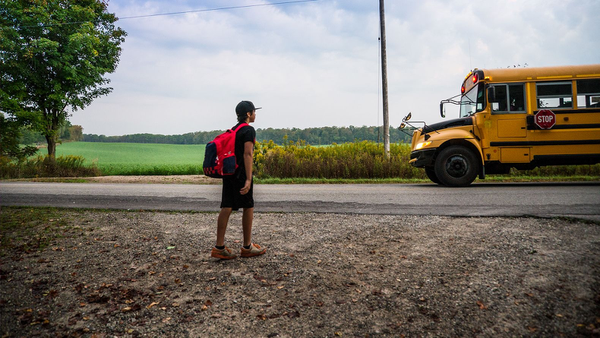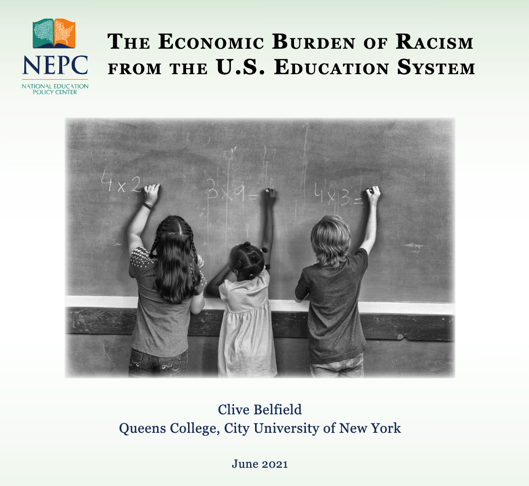5-months from today, hundreds will attend the 2021 National Forum to Advance Rural Education in Indianapolis or virtually. We’re gearing up to announce our keynote speakers, so continue to watch for more info in the coming week. In the meantime, learn more and register. https://www.nrea.net/2021-Convention-Research-Symposium#RuralEdForum #RuralEdForum |
|
| We’ve assembled a diverse and comprehensive team of experts, leaders, and institutions in health, education, and the economy representing the diversity of the country to shape the work of the COVID Collaborative, develop consensus recommendations, and engage with local, state, and national leaders – ensuring that our efforts are truly from the nation, for the nation. The COVID Collaborative is an initiative of the Office of American Possibilities. |
| | Read More |
|
|
| Rural communities are not a monolith; they have unique challenges that require unique policy solutions. One of the best ways to understand the diversity of those challenges — and, in turn, identify the most effective solutions — is to hear directly from rural communities. This Special Report analyzes data from a 2020 Strada Education Network/Gallup survey on the perceptions of postsecondary education and training, focusing on the responses from rural residents specifically. In general, rural respondents answered favorably when asked about motivations for past and future education and indicated perceived value in pursuit of education and training. However, most respondents indicated they would not pursue additional education and training in the next five years, in part because of the barriers they identified — including COVID-19, costs in general, and uncertainty in career pathways |
| | Read More |
|
|
|  |
Rural districts are an often-overlooked part of the complex American education system, even though 9.3 million students—or one in five nationally—attend a rural school. These districts are typically disregarded because of their small populations compared with larger single districts in more urban areas. In terms of funding, national and state legislation tends to be more directly applied to the larger districts in an attempt to affect the most positive change for as many students as possible. However, when considered as a group, rural districts encompass a large number of students nationwide. Despite specific challenges within rural districts, students in these districts often score at or above their peers on state and national testing. According to the Economic Research Service at the USDA, in 2018, 22.4 percent of students in non-metro schools were in poverty compared with their metro school counterparts at 17.3 percent. While these students perform well on assessments statistically, their school experience is different from that of their suburban or urban peers in several ways. |
| | Read More |
|
|
| Premont Independent School District is featured in a new book titled "The Middle of Somewhere” about education in rural America. The book has recently been accepted for publication by the Harvard Education Press and in the world of scholars and national educators, it's a big deal. The book focuses on an in-depth study on rural education and features a chapter on Premont ISD and the Rural Schools Innovation Zone (RSIZ) program.
Author and Professor Gerri M. Maxwell Ph.D. is a rural demographics educator and rural social justice scholar. She has been at the forefront of social change in rural South Texas by many efforts and helped assist in the early partnership of Premont ISD and Texas A&M University - Kingsville in 2011 when the rural district was on the verge of closing its doors. |
| | Read More |
|
|
| Rural Educator Weekly Spotlight: |
|
|
|
|  |
Even as the U.S. education system becomes more ethnically and racially diverse, many racial disparities persist with regard to school segregation, educational resources, and ultimately educational outcomes. These disparities harm students individually and have significant societal impacts as well, including economic consequences. Educational resources are misallocated in ways that may reflect racial discrimination. Black and Hispanic students often leave school with substantially lower levels of human capital and, as a result, have lower lifetime earnings on average. Together, these misallocations and losses in human capital are what this brief calls the “economic burden of racism.” In estimating the main economic burdens of racial disparities, this brief attempts to include all the resources that are affected by racism, measured in dollars. The brief’s conservative estimates point to the need for more complete and precise data; thus, the brief concludes with recommendations regarding policymaker-funded research. |
| | Read More |
|
|
| “Unscripted Possibilities” examines the potential for change that emerges in rural environments that are affected by poverty and educational reforms that ignore the specific contexts of rural schools. Using a National Writing Project program, the College, Career, and Community Writers Program as a case, we argue that professional learning relationships that are characterized by mutuality and indeterminacy create changes in teacher practice and school culture. Our analysis adapts concepts from Anna Tsing’s (2015)The Mushroom at the End of the World to uncover hopeful possibilities in damaged school environments.
- Tom Fox
- National Writing Project
- Rachel Bear
- National Writing Project
|
| | Read More |
|
|
| NREA State Affiliate News |
|
|
|
| MONDAY JUNE 14 AT 12 PM: Join RSA Executive Director Dave Little for a review of the 2021 Legislative Session’s impact on rural schools. This lunchtime Zoom presentation is intended to be a dialogue, with Dave relaying information on new legislation (and remaining issues to be addressed) and participants relaying information on their challenges and circumstances. |
| | Read More |
|
|
| Sharing Information From Our Partners and Sponsors: |
|
|
|
Global Teletherapy is a nationally renowned K-12 remote therapy services provider offering mental-health, speech, occupational, and physical therapy services to students.
Currently serving approximately 100 schools in over 30 states around the U.S. with over 500 therapists, Global Teletherapy is excited to announce that they are prepared to assist schools with their SEL needs for the coming school year.
Please click here to see an infographic explaining why SEL services are crucial to student development and wellbeing and how Global Teletherapy can help maximize your students' potential.
For a full list of SEL services offered by Global Teletherapy please click here. |
|
|